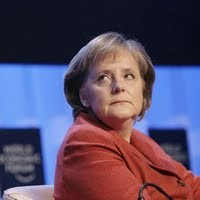Probably only few Germans, especially among the younger generation, still remember the events of June 17, 1953, some 60 years ago. After a rise in bread prices, striking workers had started to demonstrate in the streets of East Berlin, in what was still called the Soviet Occupation Zone (SBZ). As would happen three years later in Budapest and 15 years later in Prague, the strike was broken by Soviet tanks.
My grandfather was among those striking Berlin workers, and, having lost his job the day after the crackdown because of his participation, he fled to West Germany along with many others. To stop the continuous outpouring of people in the years thereafter, the East Berlin puppet government, with Moscow’s help, finally started to build the Berlin Wall in 1961, which stood until 1989. To an earlier generation of Germans, the events of June 17 became highly symbolic. The date was commemorated as the national Memorial Day in the Western part of Germany until 1990, when the country unified and chose to shift Memorial Day to October 3, when the unification treaty between the former GDR and West Germany was signed.
This year, June 17 may turn out to be another very important day for Germany, one that may mark the next 50 years or so of the country’s history, as well as that of the euro and Europe. On that day, parliamentary elections will be held in Greece and France, and the outcome of the voting may be more important for Germany than many Germans realize. Though there is no direct relationship between the events of 1953 and today’s situation, the symbolism of dates that mark game-changing events can sometimes be powerful.

